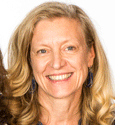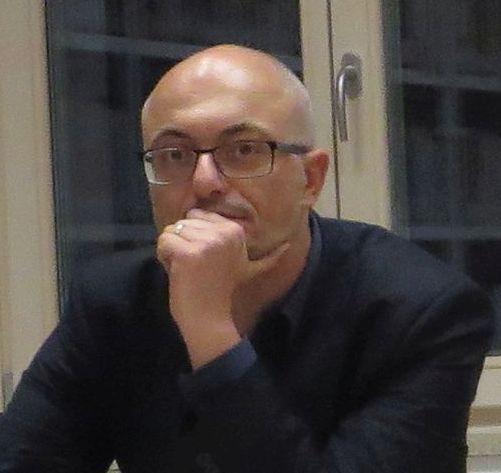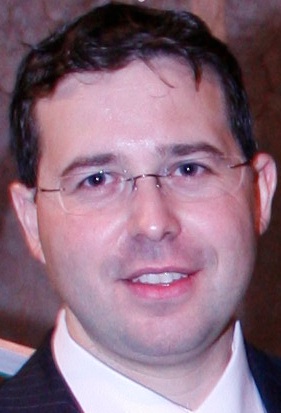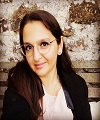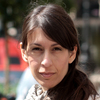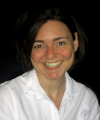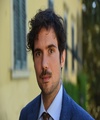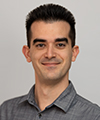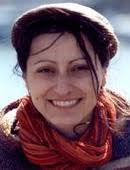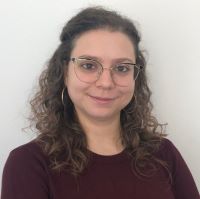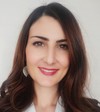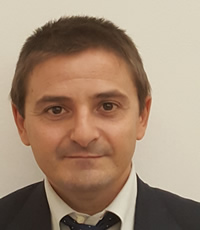Studying at the University of Verona
Here you can find information on the organisational aspects of the Programme, lecture timetables, learning activities and useful contact details for your time at the University, from enrolment to graduation.
Academic calendar
The academic calendar shows the deadlines and scheduled events that are relevant to students, teaching and technical-administrative staff of the University. Public holidays and University closures are also indicated. The academic year normally begins on 1 October each year and ends on 30 September of the following year.
Course calendar
The Academic Calendar sets out the degree programme lecture and exam timetables, as well as the relevant university closure dates..
| Period | From | To |
|---|---|---|
| CuCi IA | Sep 21, 2020 | Oct 31, 2020 |
| CuCi IB | Nov 9, 2020 | Jan 9, 2021 |
| CuCi IIA | Feb 15, 2021 | Apr 1, 2021 |
| CuCi IIB | Apr 14, 2021 | May 29, 2021 |
| Session | From | To |
|---|---|---|
| sessione d'esame invernale CuCi | Jan 11, 2021 | Feb 13, 2021 |
| sessione d'esame estiva CuCi | Jun 7, 2021 | Jul 24, 2021 |
| sessione d'esame autunnale CuCi | Aug 23, 2021 | Sep 18, 2021 |
| Session | From | To |
|---|---|---|
| sessione di laurea invernale 19-20 | Apr 7, 2021 | Apr 13, 2021 |
| sessione di laurea estiva 20-21 | Jul 5, 2021 | Jul 10, 2021 |
| Sessione autunnale di laurea a.a. 2020/21 | Nov 8, 2021 | Nov 13, 2021 |
| Sessione straordinaria di laurea a.a. 2020/21 | Mar 28, 2022 | Apr 2, 2022 |
| Period | From | To |
|---|---|---|
| Festa di Ognissanti | Nov 1, 2020 | Nov 1, 2020 |
| Chiusura Ateneo ponte Immacolata | Dec 7, 2020 | Dec 7, 2020 |
| Festa dell'Immacolata | Dec 8, 2020 | Dec 8, 2020 |
| Vacanze di Natale | Dec 24, 2020 | Jan 6, 2021 |
| Vacanze di Pasqua | Apr 2, 2021 | Apr 6, 2021 |
| Festa della liberazione | Apr 25, 2021 | Apr 25, 2021 |
| Festa del lavoro | May 1, 2021 | May 1, 2021 |
| Festa del Santo Patrono | May 21, 2021 | May 21, 2021 |
| Sospensione delle lezioni | May 22, 2021 | May 22, 2021 |
| Festa della Repubblica | Jun 2, 2021 | Jun 2, 2021 |
| Vacanze estive | Aug 9, 2021 | Aug 15, 2021 |
Exam calendar
Exam dates and rounds are managed by the relevant Culture and Civilisation Teaching and Student Services Unit.
To view all the exam sessions available, please use the Exam dashboard on ESSE3.
If you forgot your login details or have problems logging in, please contact the relevant IT HelpDesk, or check the login details recovery web page.
Should you have any doubts or questions, please check the Enrollment FAQs
Academic staff
 giovanni.bernardini@univr.it
giovanni.bernardini@univr.it
 ariel.caputo@univr.it
ariel.caputo@univr.it
 andrea.capuzzo@univr.it
andrea.capuzzo@univr.it
 marco.carradore@univr.it
marco.carradore@univr.it
 francesca.cecconi@univr.it
francesca.cecconi@univr.it
 monica.cristini@univr.it
monica.cristini@univr.it
 paolodalben@tin.it
paolodalben@tin.it
 maxclaudiogallo@gmail.com
maxclaudiogallo@gmail.com
 piergiovanna.grossi@univr.it
piergiovanna.grossi@univr.it
Hatzikiriakos Alexandros Maria
 alexandrosmaria.hatzikiriakos@univr.it
alexandrosmaria.hatzikiriakos@univr.it
 gianluca.lanfranchi@univr.it
gianluca.lanfranchi@univr.it
 giulia.pedrucci@univr.it
giulia.pedrucci@univr.it
 valentina.romanzi@univr.it
valentina.romanzi@univr.it
 alberto.scandola@univr.it
alberto.scandola@univr.it
 massimo.scotti@univr.it
massimo.scotti@univr.it
 sorayaelizabeth.shamloo@univr.it
sorayaelizabeth.shamloo@univr.it
Study Plan
The Study Plan includes all modules, teaching and learning activities that each student will need to undertake during their time at the University.
Please select your Study Plan based on your enrollment year.
1° Year
| Modules | Credits | TAF | SSD |
|---|
2° Year activated in the A.Y. 2021/2022
| Modules | Credits | TAF | SSD |
|---|
1 module among the following3° Year activated in the A.Y. 2022/2023
| Modules | Credits | TAF | SSD |
|---|
2 modules among the following| Modules | Credits | TAF | SSD |
|---|
| Modules | Credits | TAF | SSD |
|---|
1 module among the following| Modules | Credits | TAF | SSD |
|---|
2 modules among the following| Modules | Credits | TAF | SSD |
|---|
Legend | Type of training activity (TTA)
TAF (Type of Educational Activity) All courses and activities are classified into different types of educational activities, indicated by a letter.
Type D and Type F activities
| years | Modules | TAF | Teacher |
|---|---|---|---|
| 1° 2° 3° | Laboratory of Theatrical Criticism | F |
Simona Brunetti
(Coordinator)
|
| years | Modules | TAF | Teacher |
|---|---|---|---|
| 1° 2° 3° | Laboratory of Theatrical Criticism | F |
Simona Brunetti
(Coordinator)
|
| years | Modules | TAF | Teacher | |
|---|---|---|---|---|
| 1° | Data elaboration laboratory | F |
Rossana Cotroneo
(Coordinator)
|
|
| 1° 2° 3° | "Common world. 2022 Arendt Seminars | F |
Olivia Guaraldo
(Coordinator)
|
|
| 1° 2° 3° | History of comics | F |
Claudio Gallo
(Coordinator)
|
|
| years | Modules | TAF | Teacher | |
|---|---|---|---|---|
| 1° | Data elaboration laboratory | F |
Rossana Cotroneo
(Coordinator)
|
|
| 1° 2° 3° | "Common world. 2022 Arendt Seminars | F |
Olivia Guaraldo
(Coordinator)
|
|
| 1° 2° 3° | PhD Conference 2021: Margins and Forgotten places | F |
Simona Brunetti
(Coordinator)
|
|
| 1° 2° 3° | Creative Writing Laboratory | F |
Veronica Gobbato
(Coordinator)
|
|
| 1° 2° 3° | Journalistic Writing Laboratory | F |
Andrea Capuzzo
(Coordinator)
|
|
| 1° 2° 3° | History of comics | F |
Claudio Gallo
(Coordinator)
|
|
Cultural Anthropology SC (i) (2021/2022)
Teaching code
4S009136
Teacher
Coordinator
Credits
6
Language
Italian
Scientific Disciplinary Sector (SSD)
M-DEA/01 - DEMOLOGY, ETHNOLOGY AND ANTHROPOLOGY
Period
2 B dal Apr 4, 2022 al Jun 4, 2022.
Learning outcomes
Through various different teaching methods (lectures, discussions, meetings with experts, short films), the course aims to introduce students to a critical understanding of key concepts of the discipline in order to analyze through them how different contemporary situations are approached in the media, highlighting the peculiar sensitivity and the potentiality of an anthropological gaze. At the end of the course the student is expected to have a better understanding of the main categories used within anthropology; become acquainted with anthropological research practices; be capable of making use of the acquired tools to approach contemporary (inter)cultural processes; be capable of a critical approach regarding relevant issues in the public debate.
Program
Anthropological knowledge is a practical knowledge, action oriented, and constantly engaging with other world views. Starting from these premises, the course will be divided into two parts:
Part one: Concepts and methodological tools within Anthropology
The critical analysis of some objects of study of the discipline, such as culture, boundaries, belonging, differences, representation of alterity, practices and local knowledge as well as the methodological tools of the discipline (participant observation and ethnographic interviews).
Part two: Differences, cultural stereotypes and fake news
The analysis of cases of "false rumors" circulating in the media from print media to the internet in the post-truth era. In some cases, these untruths/distortions are harmless, in others they are deliberate manipulations created ad hoc, news built on stereotypes, which can have devastating effects. Critically addressing "fake news" is a vital issue for students who are involved in communications. During the course we will deal with a particular type of "lies"(untruth/distortion), those that are fed from an imagery filled with cultural stereotypes. Fake news creates dangerous short circuits.
Course Readings:
1)Miller, Barbara (2019), Cultural Anthropology, Pearson, 2nd edition.
2) Silverman, Craig (2014) Lies, Damn Lies and Viral Content.
How News Websites Spread (and Debunk) Online Rumors, Unverified Claims and Misinformation.
Available from http://towcenter.org/research/lies-damn-lies-and-viral-content/
3) Rivera, Annamaria (2020) Razzismo. Gli atti, le parole, la propaganda, Dedalo, Bari
Further Readings:
Biscaldi, Angela e Matera, Vincenzo, 2019, Antropologia dei social media, Carocci ed, Roma.
Bloch, Marc, 2004, La guerra e le false notizie, Donzelli, Roma.
Erikson, Thomas, 2017, Fuori controllo. Un'antropologia del cambiamento accellerato, Piccola Biblioteca Einaudi, To.
(2016 Overheating: An Anthropology of Accelerated Change, Pluto Press, London).
Quattrociocchi, Walter, 2016, Misinformation: guida alla società dell'informazione e della credulità, FrancoAngeli, Mi.
Salmon, Christian, 2008, Storytelling. La fabbrica delle storie. Fazio Editore, Roma.
(2007 Storytelling. La machine à fabriquer les images et à formater les esprits, Paris, La Découverte)
Salmon, Christian, 2016, Post-verità, la Repubblica online, 17 novembre
Tuckle, Sherry, 2016, La conversazione necessaria: la forza del dialogo nell'era digitale. Piccola Biblioteca Einaudi, To
(2015 Reclaiming Conversation. The Power of Talk in a Digital Age, Penguin Press, London - paperpack 2016)
Bibliography
Examination Methods
For those attending classes: class participation, in-class presentation and reports/papers. More specific details will be given at the beginning of the course.
For those not attending classes: final oral exam on the whole program. The student is asked questions about the course readings and about the main thematic issues they addressed. The student should bring with her/him the texts which s/he has studied.
The final evaluation is based on 30/30.
The oral test wants to verify:
- the breadth of knowledge gained;
- the use of a correct language;
- the ability to make connections and to discuss them.
Erasmus and international students may study the texts and take the final exam in English or French. If interested, they need to discuss the choice of the new reading materials with me during Office hours.
Career prospects
Module/Programme news
News for students
There you will find information, resources and services useful during your time at the University (Student’s exam record, your study plan on ESSE3, Distance Learning courses, university email account, office forms, administrative procedures, etc.). You can log into MyUnivr with your GIA login details: only in this way will you be able to receive notification of all the notices from your teachers and your secretariat via email and soon also via the Univr app.
Graduation
Documents
| Title | Info File |
|---|---|
|
|
pdf, it, 263 KB, 09/02/22 |
List of theses and work experience proposals
| theses proposals | Research area |
|---|---|
| Laureandi Scienze della Comunicazione: vademecum | Various topics |
| Stage | Research area |
|---|---|
| L'iter del libro in biblioteca | Various topics |
| Proposte stages - Centro di ricerca Skenè | Various topics |

 +39 045 802 8459
+39 045 802 8459
